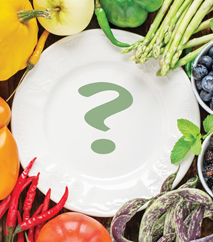If there’s one word we hear again and again to describe the produce industry, it’s change. Like the plants, soil, and climate, the industry is in a constant state of flux and growth, some of it easy and some of it painful.
Last year, we talked to industry members far and wide, asking them to look ahead and predict pivotal events, challenges, or triumphs for the fresh produce industry in 2015. As we suspected, these folks turned out to be pretty savvy about what was on the way and what buyers, sellers, and consumers alike should prepare for.
As we march into 2016, we went back to some of these sages along with a few more and asked what we would see this year in terms of competition, food safety, labor, innovation, transportation, and the ongoing perils of the California water shortage.
COMPETITIVE LANDSCAPE
Although change may be constant, it doesn’t have to be sudden. Our experts talked about changes in terms of trends happening now and on the way, with several seeing 2016 as the beginning of much larger changes to come.
Buying & Selling Online
“You’re definitely going to see a proliferation of consumers using online networks to order products,” comments Bruce Peterson, formerly of Walmart, and president of Bentonville, AR-based Peterson Insights. “There are exclusive e-commerce players and now brick-and-mortar retailers providing an e-commerce avenue. Every major retailer is in this space, one way or another.”
Kristen S. Park, extension associate at Cornell University agrees. “Everybody is looking online. Every time you open up a trade publication, there’s Instacart and Fresh Direct and Door-to-Door Organics. What will happen when these third parties are in retail stores picking produce for their customers? It will be up to the store to be able to offer consistently high-quality produce a [home shopper] will accept, and everything has to be in stock.”
Karen Caplan, president and CEO of Frieda’s, Inc. in Los Angeles, believes brick-and-mortar stores will always have a place in the retail industry, in conjunction with online ordering. “I don’t think online grocery sales will replace in-person grocery shopping,” she comments. “Online sales will be a factor for both major commodities like bananas, melons, potatoes, onions, apples, and grapes, and for specialties—i.e., you need a special ingredient for a recipe and your local grocery store doesn’t stock it.”
The difference, according to Peterson, is how consumers will choose to get the products they buy online. He predicts more consumers ordering fresh produce online and picking it up at a brick-and-mortar location. Much of this depends on location, as delivery services in some areas are prohibitively expensive, often more than the entire purchase itself.



